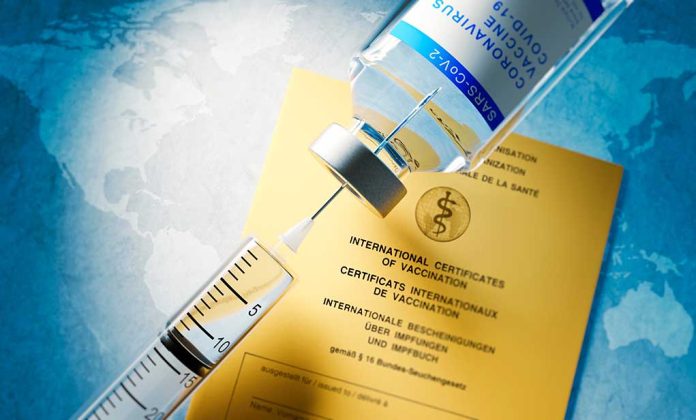
Health Secretary Robert F. Kennedy Jr. has announced new transparency measures requiring placebo-controlled trials for all new vaccines, igniting both praise and criticism among medical professionals and the public.
Key Takeaways
- HHS Secretary Kennedy plans to require all new vaccines to undergo placebo testing, potentially enhancing transparency but possibly limiting vaccine availability.
- The Trump administration is simultaneously investing $500 million in a universal vaccine project despite budget cuts in health agencies.
- Kennedy has advised parents to “do your own research” regarding infant vaccinations, comparing vaccine research to researching baby strollers.
- The announcement comes amid measles outbreaks in at least six U.S. states, attributed to declining vaccination rates.
- Critics argue the new requirements may delay vital vaccines, while supporters praise the emphasis on safety and transparency.
Kennedy’s Vaccine Testing Overhaul
Health and Human Services Secretary Robert F. Kennedy Jr. has unveiled plans to require placebo-controlled trials for all new vaccines seeking approval in the United States. This significant policy shift aims to increase transparency in vaccine testing but may potentially extend the timeline for bringing new vaccines to market. The announcement represents one of Kennedy’s first major policy initiatives since assuming leadership of HHS under the Trump administration and aligns with his long-expressed concerns about vaccine safety protocols and pharmaceutical industry oversight.
🚨 BREAKING: HHS will require that ALL new vaccines be tested in placebo-controlled trials before they’re licensed for use.
“Under Secretary Kennedy’s leadership, all new vaccines will undergo safety testing in placebo-controlled trials prior to licensure — a radical departure… pic.twitter.com/WLbW683zjD
— Lauren Lee (@sheislaurenlee) May 1, 2025
While announcing the new testing requirements, Kennedy has simultaneously supported a substantial $500 million investment in a universal vaccine project. This comes despite broader budget cuts and staff reductions across health agencies, highlighting the administration’s selective approach to health funding. The dual moves suggest an attempt to balance skepticism toward traditional vaccine approval processes with support for innovative vaccine technologies under increased scrutiny.
“Do Your Own Research” Approach
Kennedy recently sparked controversy by advising American parents to “do your own research” before vaccinating their infants. During recent public appearances, he compared researching vaccines to investigating other consumer products like baby strollers and infant foods. This stance has alarmed many public health officials who point to the mainstream scientific consensus around the safety and importance of childhood immunizations in preventing serious diseases and maintaining community immunity.
Kennedy’s comments have raised particular concern as they come during the largest measles outbreak in the United States in 25 years, with cases reported in at least six states and three confirmed deaths. Public health experts claim that measles outbreaks typically occur in areas with lower vaccination rates, highlighting the potential consequences of vaccine hesitancy. Despite these concerns, Kennedy has emphasized individual choice while acknowledging the effectiveness of vaccines against specific diseases.
Impacts on Public Health Policy
The placebo testing requirement represents a significant departure from current vaccine approval procedures and could reshape how new vaccines are evaluated in the United States. Standard vaccine testing already includes multiple phases of clinical trials, but Kennedy’s proposal would formalize and potentially expand the use of placebo controls. Medical researchers have expressed mixed reactions, with some arguing that enhanced safety protocols could restore public trust in vaccines while others warn about unnecessary delays in addressing emerging health threats.
In response to these developments, the University of Minnesota’s Center for Infectious Disease Research and Policy has announced a steering committee for its Vaccine Integrity Project, aimed at ensuring scientific rigor in vaccine development and approval. Meanwhile, a recent study found that receiving influenza vaccines can cause temporary changes in menstrual cycles, highlighting the importance of comprehensive safety monitoring. These findings demonstrate the complex balance between rigorous safety testing and responsible vaccine deployment that Kennedy’s new policies must navigate.









